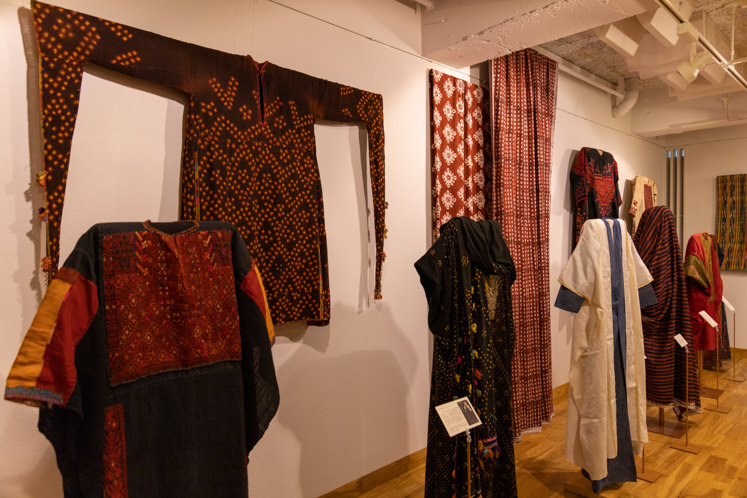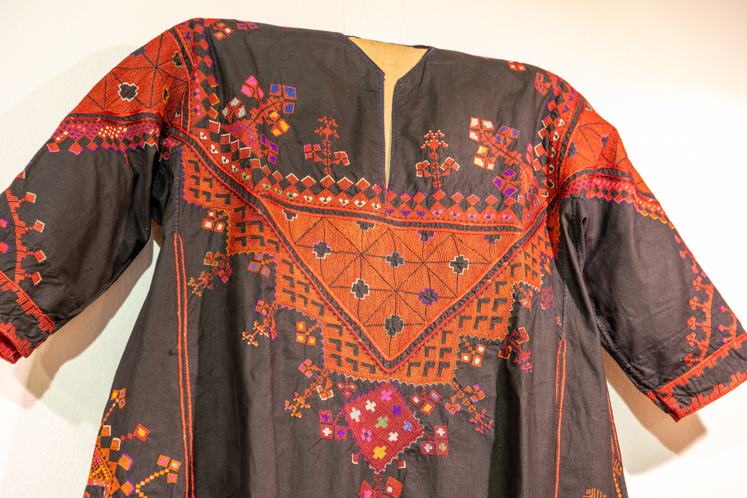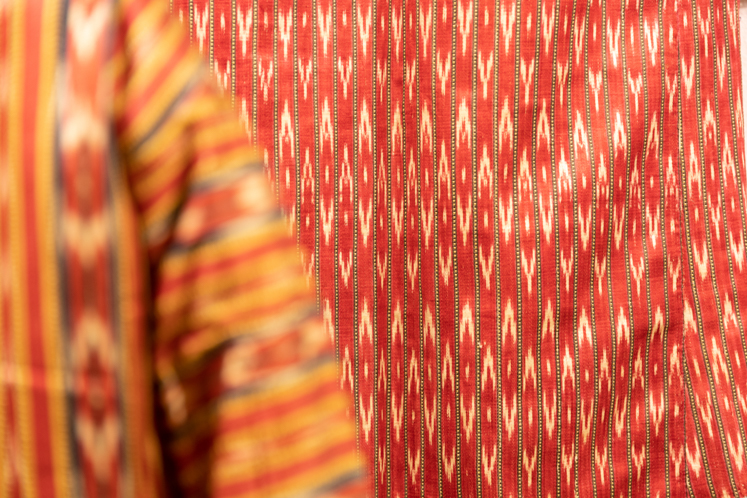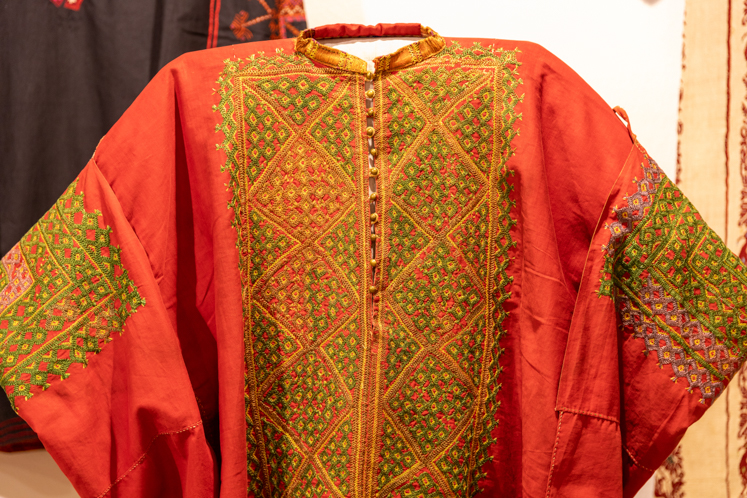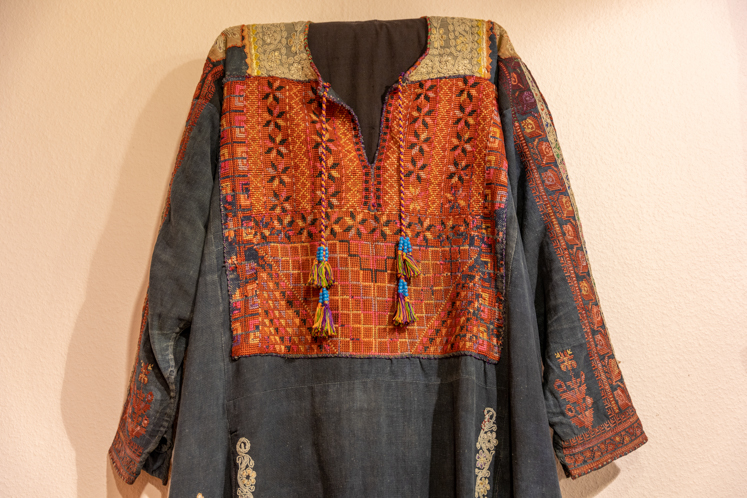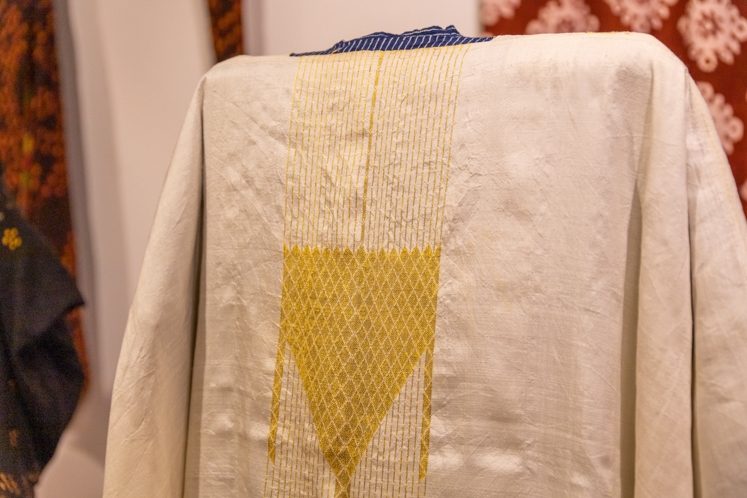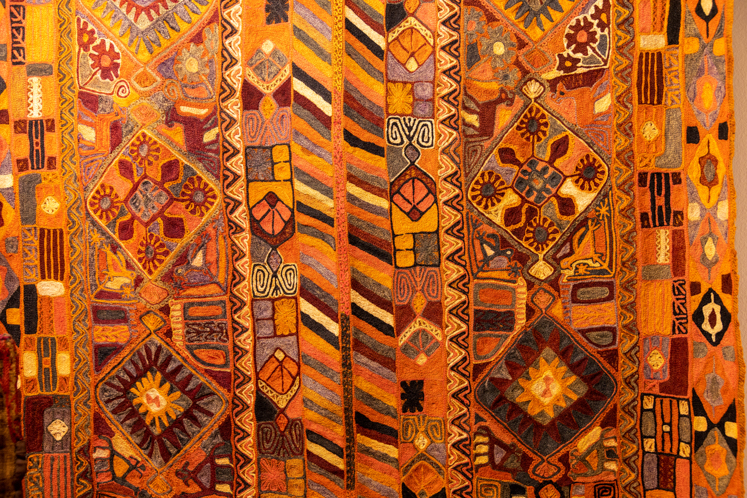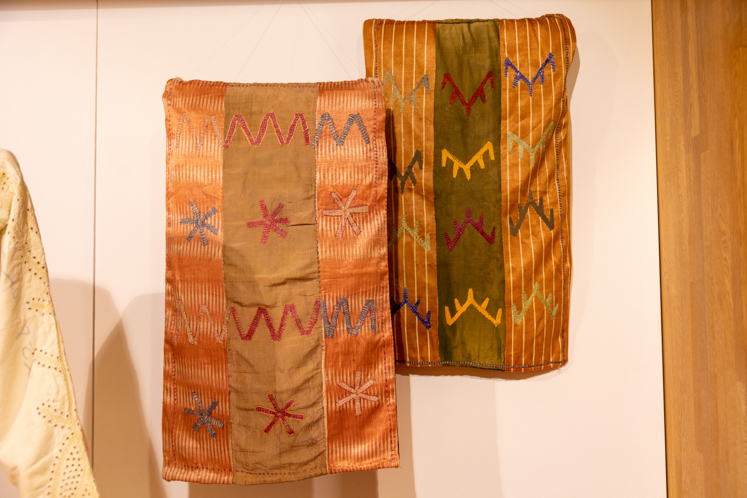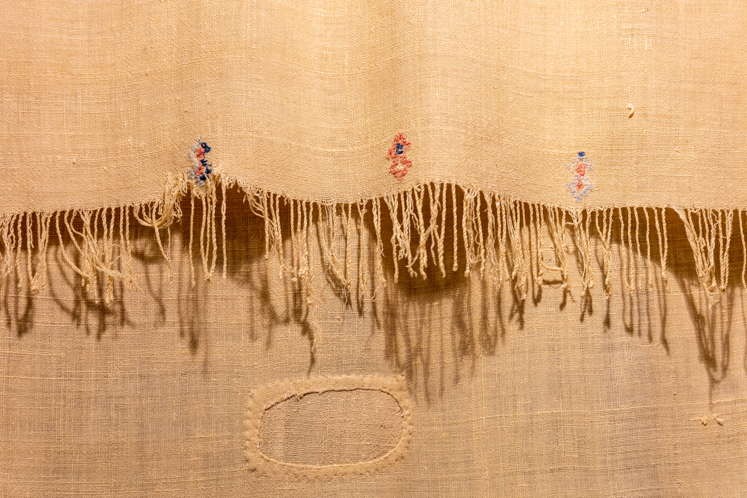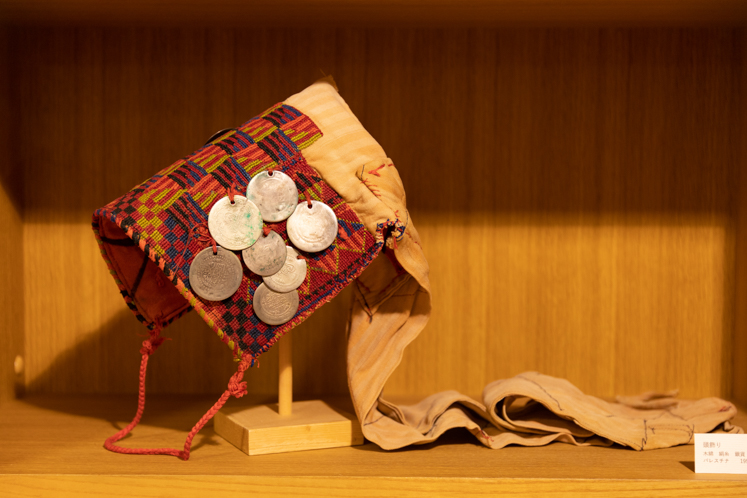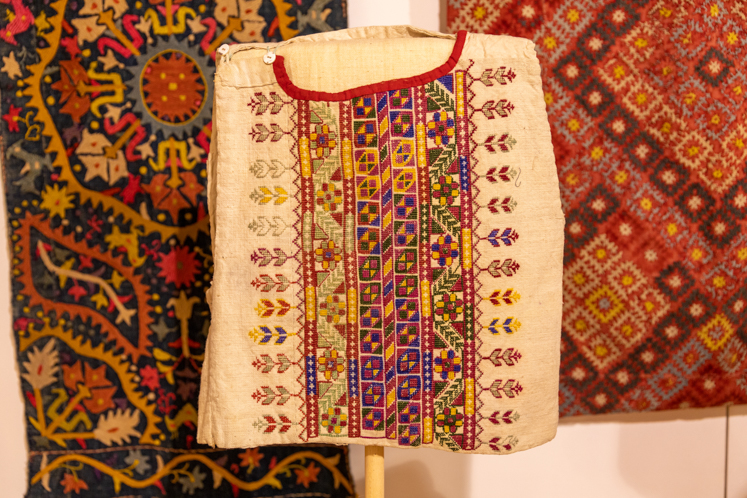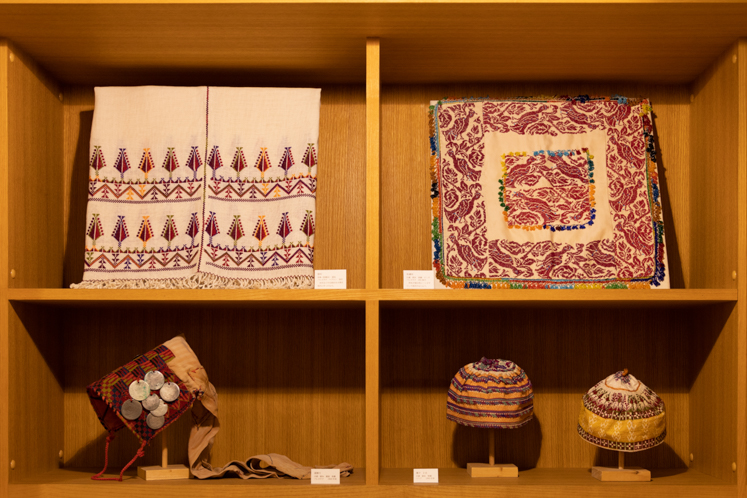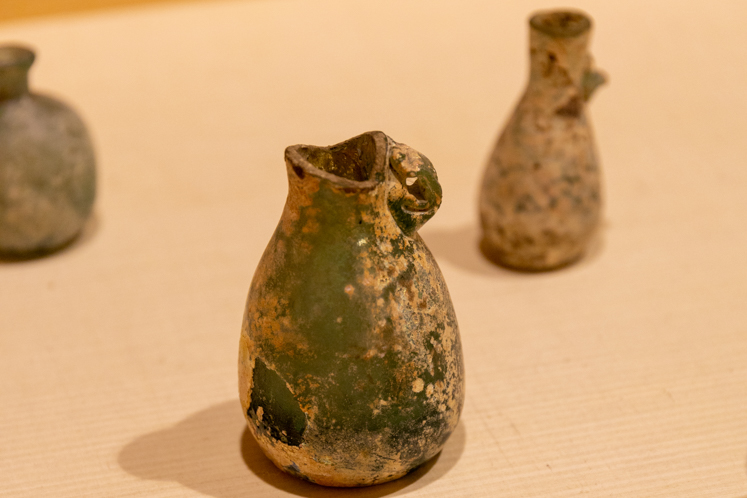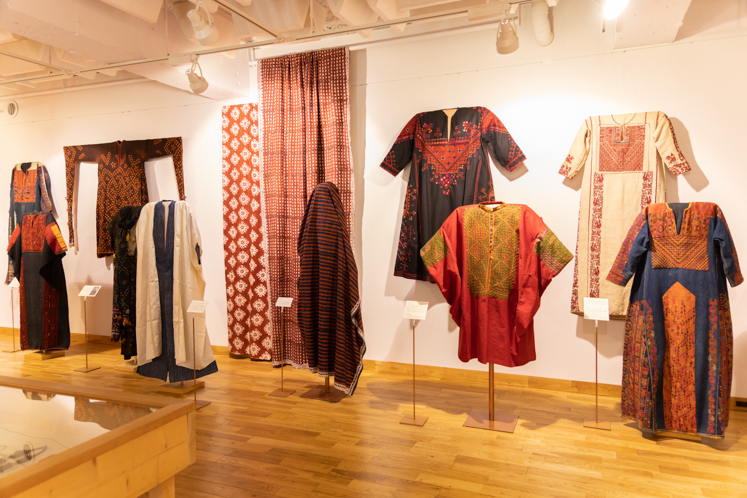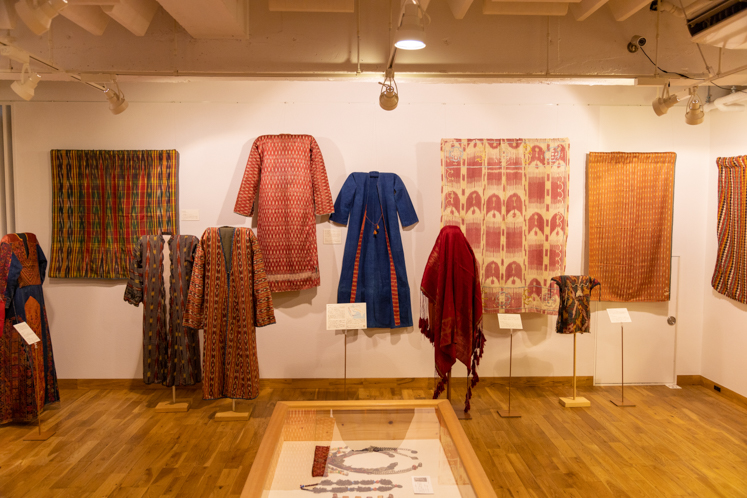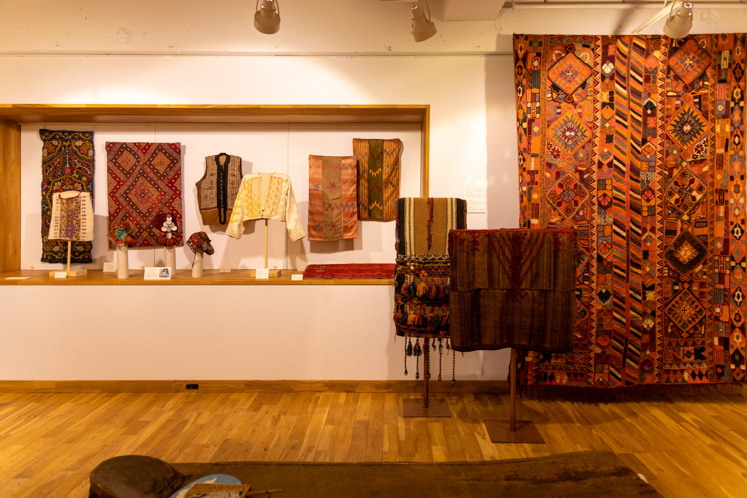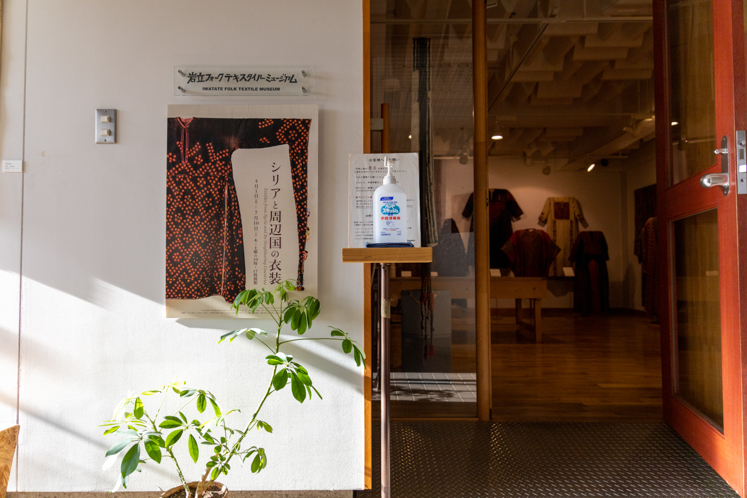Textiles from Syria and Its Neighboring Countries
April 1st — July 10th, 2021
The Euphrates River basin, which nurtured the Mesopotamian civilization across Syria, was the site of numerous ancient civilizations. As symbolized by the ruins, the area flourished as a strategic point for east-west transportation from ancient times, and the traffic of dyeing and weaving was also prosperous. The name "damask weaving," which is well known even today, indicates the long history and skillful techniques of the weaving industry.
The region includes Turkey to the north, Iraq to the east, Jordan to the south, Lebanon to the southwest, Israel and the Palestinian Territories to the southwest, and Syria, a country facing the Mediterranean Sea to the west. The entire region of West Asia, including these neighboring countries, has an extremely arid climate consisting of deserts, grasslands, plateaus, and hills. This climate has served as the basis for a culture that, along with the ethnicity of the Muslim majority population, has produced unique dyed and woven textiles.
Unfortunately, however, the situation surrounding Syria, which has been under conflict since 2011, is said to be the greatest humanitarian crisis of the 21st century. The reality of the war ravages, with no way out in sight, makes it difficult to even recall these beautiful handicrafts. Nevertheless, the dyed and woven works on display in this exhibition are proof that the people of the region have lived with the land and passed them down from generation to generation. We hope that the universality of handcrafts will inspire you with a wish for peace.
The region includes Turkey to the north, Iraq to the east, Jordan to the south, Lebanon to the southwest, Israel and the Palestinian Territories to the southwest, and Syria, a country facing the Mediterranean Sea to the west. The entire region of West Asia, including these neighboring countries, has an extremely arid climate consisting of deserts, grasslands, plateaus, and hills. This climate has served as the basis for a culture that, along with the ethnicity of the Muslim majority population, has produced unique dyed and woven textiles.
Unfortunately, however, the situation surrounding Syria, which has been under conflict since 2011, is said to be the greatest humanitarian crisis of the 21st century. The reality of the war ravages, with no way out in sight, makes it difficult to even recall these beautiful handicrafts. Nevertheless, the dyed and woven works on display in this exhibition are proof that the people of the region have lived with the land and passed them down from generation to generation. We hope that the universality of handcrafts will inspire you with a wish for peace.
I had longed to visit Syria ever since I first saw ancient glass in Afghanistan, and in August 2000, I visited the country with that longing in mind. However, I was able to see the handcrafts that have been handed down since ancient times, and I was able to see them in action.
I was fascinated by the culture that people have built in their humble lives, rather than the wealth of the country, and thought that there is an invisible power of equality in such things as dyed fabrics. There are things to be learned from countries where the sun does not shine.
Hiroko IWATATE
I was fascinated by the culture that people have built in their humble lives, rather than the wealth of the country, and thought that there is an invisible power of equality in such things as dyed fabrics. There are things to be learned from countries where the sun does not shine.
Hiroko IWATATE
